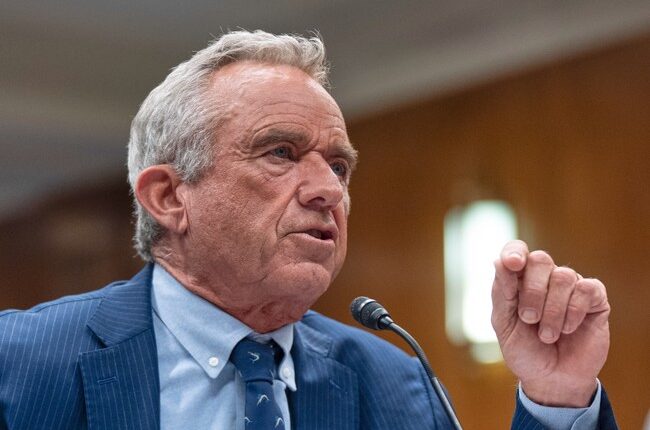
Health and Human Services (HHS) Secretary Robert Kennedy and Dr. Mehmet Oz, Administrator for Centers for Medicare & Medicaid Services (CMS), held a press conference on Monday. During the conference, they made a commitment to simplify the authorization processes for Medicare, Medicaid, the Health Insurance Marketplace, and commercial plans that are widely used by Americans. This initiative aims to make it easier for individuals to access the care they need without facing unnecessary hurdles.
The HHS website press release announced,
Basically, every major health insurer in the United States. This matters.
Secretary Kennedy expressed his gratitude to insurance companies for their cooperation in this effort. He emphasized that patients should not have to engage in negotiations with their insurers to receive necessary healthcare services. The goal is to eliminate the adversarial dynamic between patients, healthcare providers, and insurance companies. The focus is on streamlining the prior authorization procedures for common services like diagnostic imaging, physical therapy, and outpatient surgery.
For those fortunate enough to have never dealt with the complicated process of obtaining pre-authorizations or physician referrals, consider it a blessing. The experience can be cumbersome and frustrating, as illustrated by a personal account of a relative who had to navigate through the system after a hospitalization. The delays in getting approvals to see different specialists post-hospitalization led to prolonged waiting periods and increased stress. Simplifying these authorization processes can significantly reduce the burden on patients and improve overall healthcare outcomes.
“These commitments represent a step in the right direction toward restoring trust, easing burdens on providers, and helping patients receive timely, evidence-based care,” said Administrator Oz. “We applaud these voluntary actions by the private sector, which is how these types of issues should be solved. CMS will be evaluating progress and driving accountability toward our shared goals, as we continue to champion solutions that put patients first.”
And this is only one aspect of how the insurance authorization system has made patients’ lives miserable. With the new changes outlined, the major insurers have committed to:
- Standardize electronic prior authorization submissions using Fast Healthcare Interoperability Resources (FHIR®)-based application programming interfaces.
- Reduce the volume of medical services subject to prior authorization by January 1, 2026.
- Honor existing authorizations during insurance transitions to ensure continuity of care.
- Enhance transparency and communication around authorization decisions and appeals.
- Expand real-time responses to minimize delays in care with real-time approvals for most requests by 2027.
- Ensure medical professionals review all clinical denials.
Despite making noises in the past to reform the system, the major providers appear more invested in the overhaul process this time around. One reason could well be that it has become a matter of life and death for them. The December 2024 murder of UnitedHealthcare CEO Brian Thompson in New York was purportedly because the alleged killer, Luigi Mangione, was denied a procedure that would have improved his quality of life. With 40 percent of Gen Z supporting Mangione, saying that his actions were justified under the circumstances, the insurance provider CEOs are making very public moves to ensure Americans see their commitment to change, and that they will do what is within their power to see it done.

















